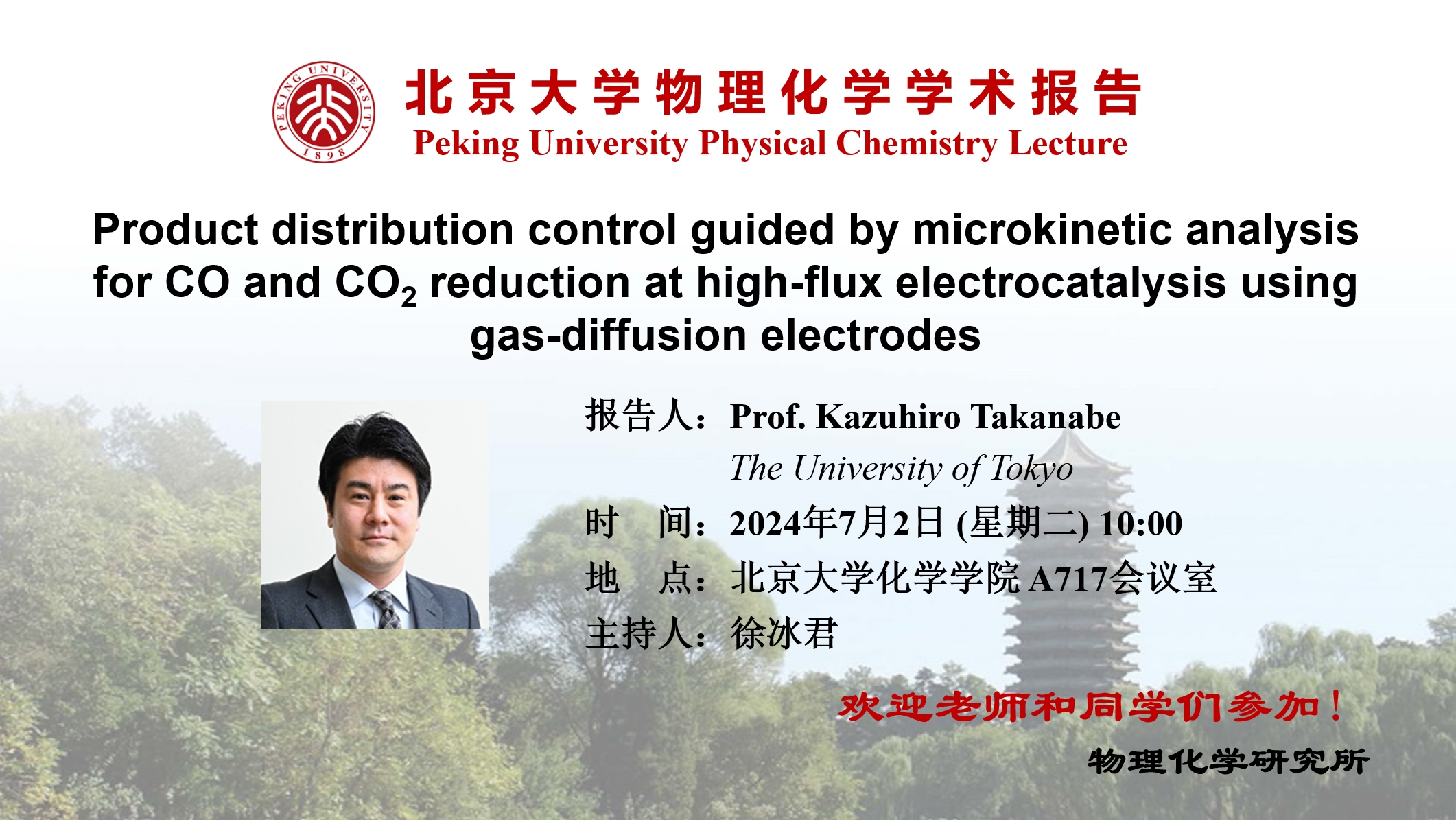
Abstract
Electrocatalytically converting CO2 into value-added and energy-dense chemicals (C2+) stands out as a route for achieving a decarbonized society. The last decade has witnessed advancements in catalyst design, including engineering crystal facets and grain boundaries, introducing dopants and defects, and alloying Cu with another transition metal.1 This presentation introduces our laboratory studies on this type of reaction, where they focus on Cu-based alloy, gas diffusion electrode, operando spectroscopy, and electrolyte engineering. Strategies developed by the experiments at low current densities often cannot be simply extrapolated to practical high electrocatalytic performance achieving over 1 A cm−2, impeding the establishment of design guidelines for practical application. Microkinetic analysis at commercially relevant conditions is thus of great significance, which would allow us to develop electrocatalysts and reactor configurations by rational design.
Biography
Prof. Kazuhiro Takanabe is Professor in the Department of Chemical System Engineering at The University of Tokyo since 2018. He previously worked at the University of Twente in the Netherlands (2002-2004), at the University of California at Berkeley (2006-2008), at the University of Tokyo (2008-2010), and at King Abdullah University of Science and Technology (KAUST) (2010-2018). He is currently Editor of the Journal of Catalysis since September 2017. His research topics address the important dynamic transition of energy systems using conventional fossil fuel to new renewable energy; including electrocatalysis for water splitting and CO2 reduction, photocatalysis for water splitting, natural gas conversion, metal cluster chemistries, and ammonia synthesis via innovative technology. His research group not only develops novel catalysts but also studies kinetics and reaction mechanisms at molecular level. The research aims to bridge the gap among the fields of thermal-, electro-, and photo-catalysis, which are addressed through world-wide collaborations to achieve practical industrialization.